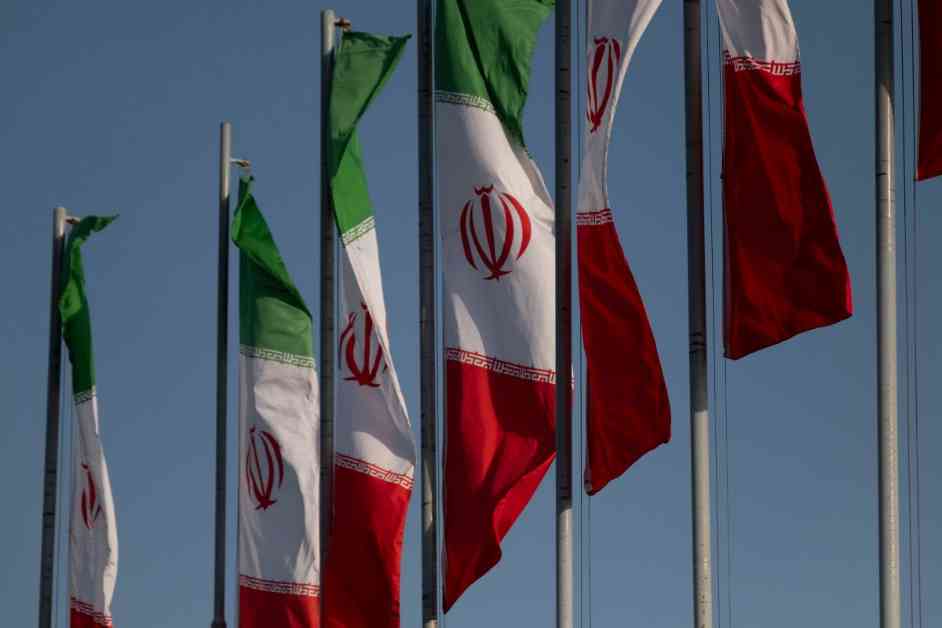Iranian Hackers Charged with Hacking Trump Campaign to ‘Stoke Discord’
The U.S. Department of Justice recently made headlines by announcing criminal charges against three hackers affiliated with Iran’s Islamic Revolutionary Guard Corps (IRGC). The trio, Masoud Jalili, Seyyed Ali Aghamiri, and Yasar (Yaser) Balaghi, have been accused of engaging in a sophisticated hacking campaign that spanned over four years. One of the notable targets of this operation was the presidential campaign of Donald Trump in the current year.
According to the indictment released by U.S. prosecutors, the trio had a specific focus on targeting the Trump campaign, former White House and senior government officials, as well as members of Congress. This hack-and-leak operation was part of a broader effort to sow discord and disrupt the political landscape in the United States.
The hacking campaign is believed to have been initiated partially as a response to the killing of Iranian General Qasem Soleimani by the Trump administration in 2020. Following this event, the Iranian government vowed to seek revenge, leading to a series of retaliatory actions, including cyber operations targeting individuals associated with the former Trump administration.
U.S. Attorney General Merrick Garland highlighted the significance of the Iranian hacking campaign, stating that it was intended to influence the upcoming 2024 presidential election. Garland emphasized the need to protect the integrity of the U.S. electoral process from foreign interference and manipulation.
Impact of the Hack on U.S. Political Landscape
The indictment revealed that the Iranian hackers employed phishing techniques to infiltrate the online accounts of former senior government officials. By gaining unauthorized access to these accounts, the hackers were able to steal sensitive campaign material with the intention of leaking it to the media. This tactic aimed to create chaos and confusion within political circles, potentially influencing public opinion and electoral outcomes.
In August, major news outlets like Politico, The New York Times, and The Washington Post received documents purportedly stolen from the Donald Trump campaign. An individual using the alias “Robert” contacted these media organizations and shared the stolen files, prompting concerns about the security of political campaigns and the potential impact of leaked information on the democratic process.
Unlike the 2016 Russian hacking incident involving the Democratic National Committee, media outlets chose not to publish the content of the stolen documents from the Trump campaign in 2021. Instead, journalists focused on the fact that the information had been obtained through illicit means, highlighting the unethical nature of hacking and leaking sensitive political data.
Response from U.S. Government and Tech Companies
Following the revelation of the Iranian hacking campaign, the FBI, the Office of the Director of National Intelligence, and the U.S. cybersecurity agency CISA issued a joint statement identifying Iran as the perpetrator behind the hack-and-leak operation. The statement emphasized Iran’s ongoing efforts to interfere with the U.S. election process through cyber espionage and disinformation campaigns.
Tech giants Microsoft and Google also joined the chorus of accusations against Iranian government-backed hackers targeting individuals affiliated with both the Trump and Biden campaigns. The coordinated cyber attacks aimed to compromise the security of campaign data and potentially influence the outcome of the presidential election.
Despite the mounting evidence implicating Iran in the hacking campaign, some journalists and independent reporters decided to publish the stolen documents for public scrutiny. Ken Klippenstein, a journalist, released a detailed dossier on Republican vice presidential nominee J.D. Vance, citing the public interest in accessing the information ahead of the election season.
In conclusion, the Iranian hacking campaign targeting the Trump campaign and other political entities underscores the growing threat of cyber warfare in the modern era. As foreign adversaries continue to exploit vulnerabilities in digital systems to advance their agendas, it becomes imperative for governments, tech companies, and media organizations to collaborate in safeguarding the integrity of democratic processes and defending against malicious cyber activities.











